Today’s post was written by Emma Fuller, a Discovery guide at Bon Echo Provincial Park.
A lot is left to chance when you’re planning a summer camping trip. You can’t always ensure sunny weather, quiet car rides, or calm paddling waters.
However, one thing is certain if you’re heading into the outdoors, you’re definitely going to encounter the pesky buzz of Ontario’s biting insects!
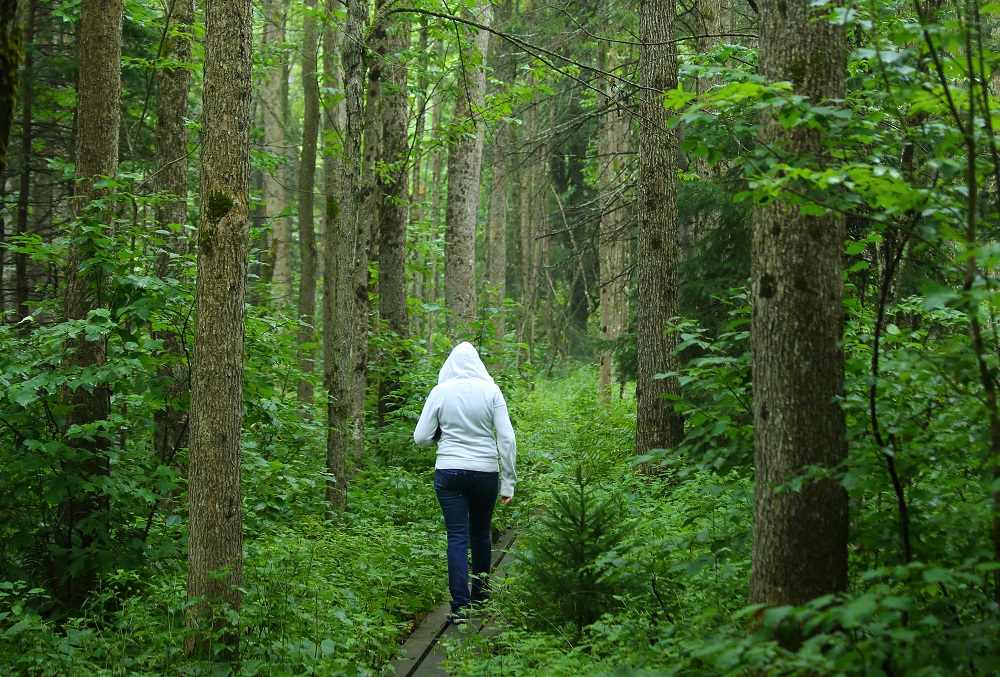
The picturesque forests, rivers, and lakes that draw us to visit the great outdoors are the same habitats that biting insects thrive in, so it’s no surprise to find them in your favorite park.
Since you know biting insects will evidently greet you at the park gate, it’s best to accept them as just another aspect of your trip and plan accordingly to tolerate them.
Ouch, who bit me?
If you’ve camped, hiked, biked, or swam in Ontario Parks, it’s probably safe to say you’ve encountered at least one, if not all, of Ontario’s biting insects.
Let’s get familiar with the four most common bugs you may encounter:
Black flies
Black flies are easily identifiable as the smallest of Ontario’s biting insects. They’re approximately the size of a sesame seed.
Black flies are not usually active all year round. In fact, you’ll probably only encounter them during the months of May and June.
Mosquitoes
Mosquitos are Ontario’s best-known biting insect.
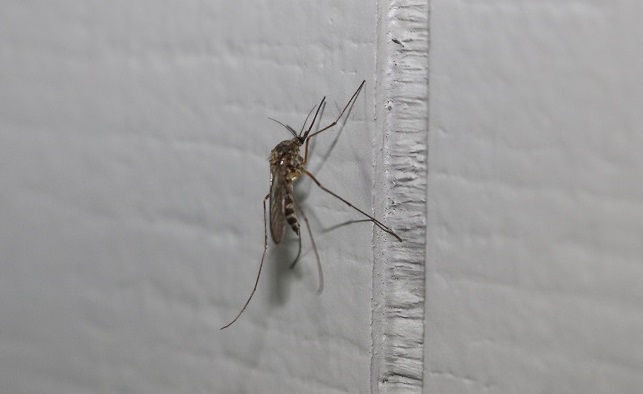
They will buzz and bite all hours of the day but are particularly active at night and are usually the source of the loud buzzing in your tent when you’re trying to sleep.
You can encounter mosquitoes from June, all the way through September.
Deer flies and horse flies
These insects don’t just pester humans, they also tend to bite large wildlife, hence their names!

Both deer flies and horse flies are much bigger than black flies and mosquitoes, and pack a more painful bite. Like many other biting insects, only female deer flies and horse flies bite. They require the proteins found in blood to produce their eggs.
Deer flies and horse flies typically appear in July and stay throughout August.
Believe it or not, biting insects are necessary
While biting insects may have put a damper on some of your camping adventures, we can still acknowledge them as important species as they’re critical to healthy ecosystems.
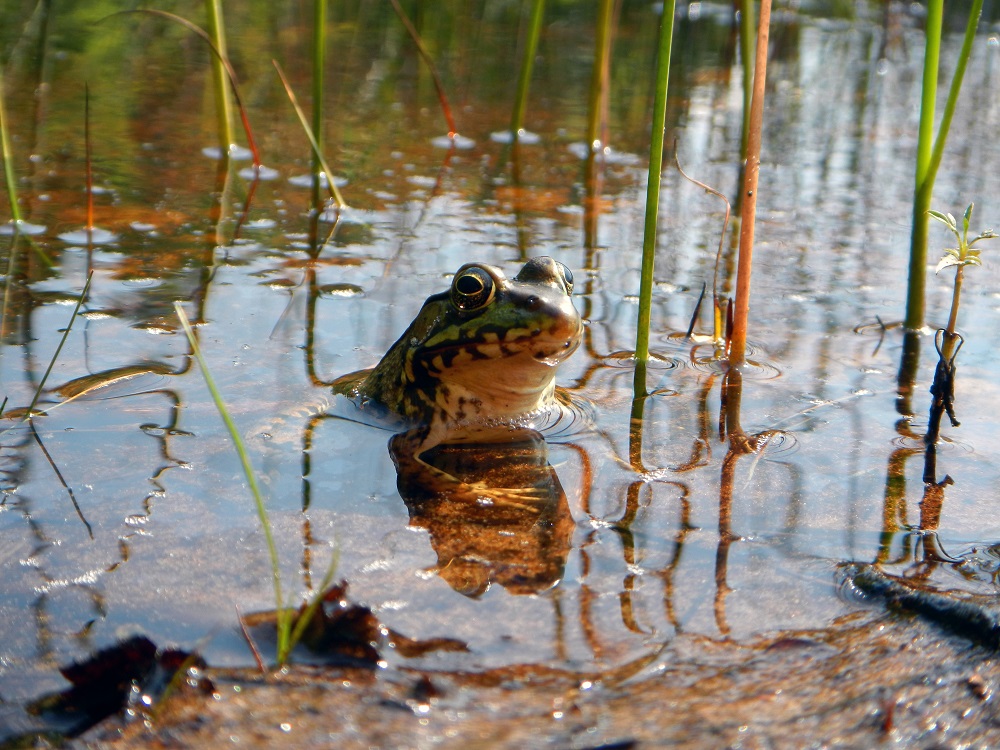
These tiny bugs keep the food web strong by providing a food source for fish, reptiles, amphibians, birds, and mammals.
The larva of biting insects, particularly mosquitoes, are a food source for aquatic wildlife. Adults feed many species of birds and bats.
Without biting insects, many of Ontario’s treasured wildlife would be missing their favorite snack.

Biting insects are helpful pollinators, too! They don’t just eat the blood of their prey; many of them, especially males, consume plant nectar, pollinating the plants as they do so.
How to prep for your trip to bug country
Despite biting insects ultimately being good for ecosystems, you still don’t have to love them, you just have to tolerate them.
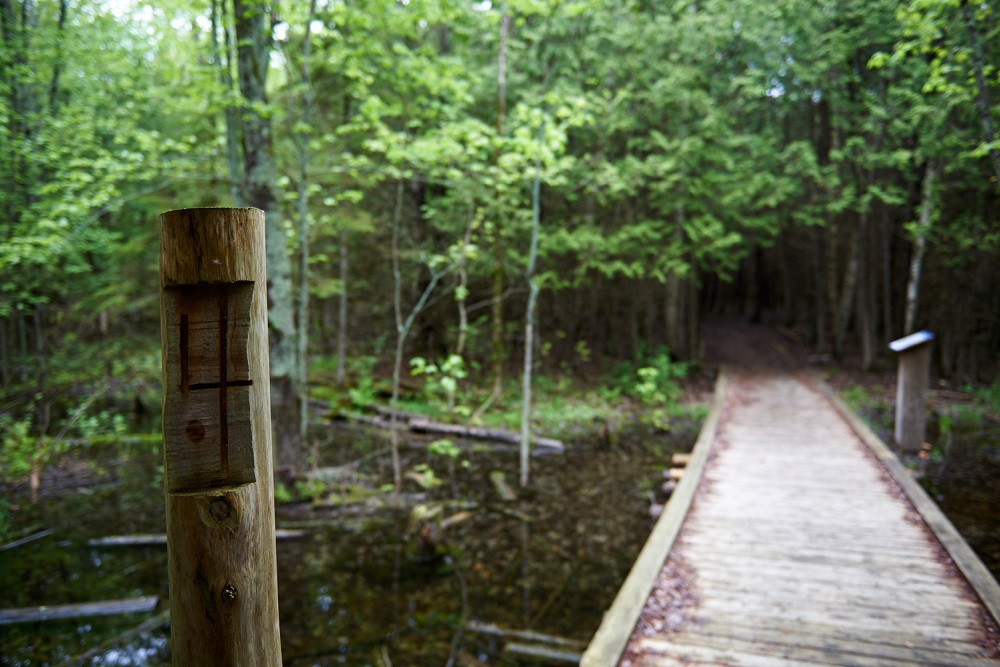
Bugs will always be a part of our camping trips and outdoor adventures, so it’s wise to learn the best ways to be comfortable around them.
Luckily, there are plenty of tricks and tools available to help mitigate your interactions with them:
- wear insect repellent.
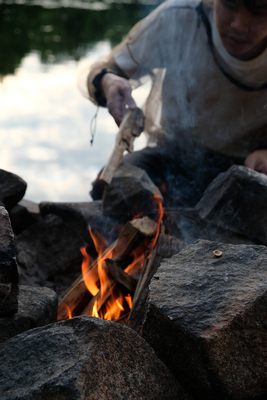 There are lots of options, including eco-friendly and DEET-free, for you to pick from
There are lots of options, including eco-friendly and DEET-free, for you to pick from - wear a bug net or clothing with lots of coverage. Long sleeves and pants usually make it harder for biting insects to find skin to bite
- bugs don’t like the scent of citronella candles. Light one at your picnic table to keep bugs off as you eat
- have a campfire! The smoke from your campfire will help keep the bugs away
- invest in bug tents or screen shelters. Bugs can’t find their way through the tight mesh, giving you a much-needed retreat.
- when planning your camping trip, think about reserving a campsite away from any still bodies of water or thick forested areas
Accepting bugs as just another facet of the great outdoors can be tough, but it’s essential in order to enjoy yourself outside.
With a new bug-appreciating attitude and a few helpful tools, your next trip out in bug country will be a breeze!








